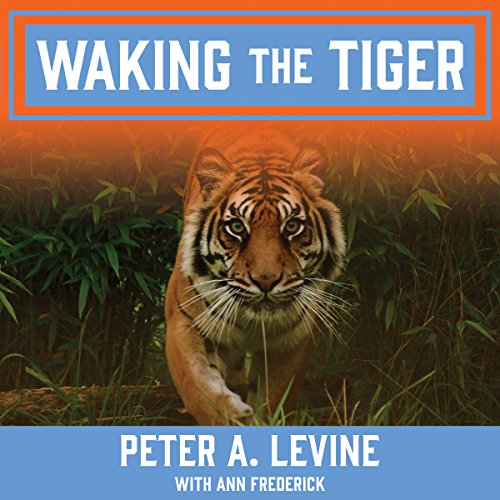Support Embodimental Health through your purchases! This page contains affiliate links. We have determined that the use of affiliate links is the most unobtrusive way to passively raise funds at no cost to you. We prioritize quality recommendations whether we gain commission on them or not.
Books & Audiobooks
Check out our amazing, hand-selected book collection to help you better understand and love yourself, and get more out of life! Click the picture or title to see current sale price and to order.
Books on Trauma
Healing Trauma
By: Peter A. Levine with Ann Frederick
“Waking the Tiger normalizes the symptoms of trauma and the steps needed to heal them. People are often traumatized by seemingly ordinary experiences. The reader is taken on a guided tour of the subtle, yet powerful impulses that govern our responses to overwhelming life events. To do this, it employs a series of exercises that help us focus on bodily sensations. Through heightened awareness of these sensations trauma can be healed.”
This is an excellent introductory book to the field of trauma. We recommend it because it compassionately guides the reader to recognize and understand trauma without getting overly complex. If you enjoy this book, you can get more in depth with In an Unspoken Voice by the same author, below.
Note: we do not recommend the audiobook version of this particular book simply because the reader sounds disinterested or even annoyed at times. Luckily most of Peter Levine’s other books are narrated by himself, and those we do recommend.
How the Body Releases Trauma and Restores Goodness
By: Peter A. Levine, PhD
Highly Recommended. The author is also the founder of Somatic Experiencing®(SE), and “In an Unspoken Voice” is the next-best thing to having the SE manual.
Brain, Mind, and Body in the Healing of Trauma
By: Bessel Van Der Kolk, M.D.
While this book is a New York Times bestseller, if you are just getting started learning about your own trauma, we actually do not recommend starting here for two reasons. First, this book was written primarily as a clinician to other clinicians, so tends to be cold and heady. Second, much of this book contains traumatic stories of all kinds, so it can be triggering to read and little help is to be found until the last quarter or so when he starts addressing solutions.
That being said, this is otherwise a well-known book that has helped inform and transform the field of post-traumatic stress disorder (PTSD), with special attention to evidence-based research using yoga as a modality for resiliency.
How Early Trauma Affects Self-Regulation, Self-Image, and the Capacity for Relationship
By: Laurence Heller and Aline LaPierre
Highly Recommended!
“Written for those working to heal developmental trauma and seeking new tools for self-awareness and growth, this book focuses on conflicts surrounding the capacity for connection. Explaining that an impaired capacity for connection to self and to others and the ensuing diminished aliveness are the hidden dimensions that underlie most psychological and many physiological problems, clinicians Laurence Heller and Aline LaPierre introduce the NeuroAffective Relational Model® (NARM), a unified approach to developmental, attachment, and shock trauma that, while not ignoring a person’s past, emphasizes working in the present moment. NARM is a somatically based psychotherapy that helps bring into awareness the parts of self that are disorganized and dysfunctional without making the regressed, dysfunctional elements the primary theme of the therapy. It emphasizes a person’s strengths, capacities, resources, and resiliency and is a powerful tool for working with both nervous system regulation and distortions of identity such as low self-esteem, shame, and chronic self-judgment.”




